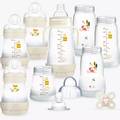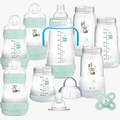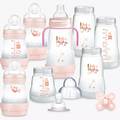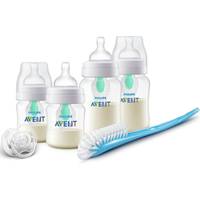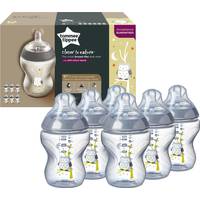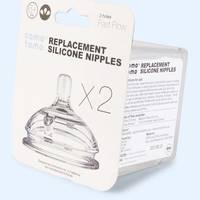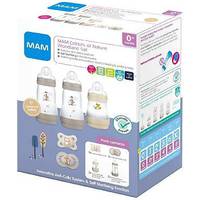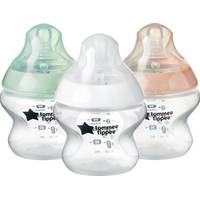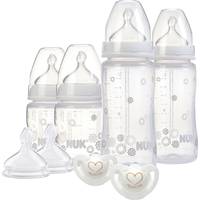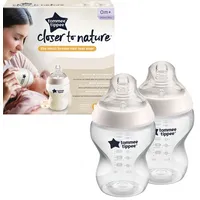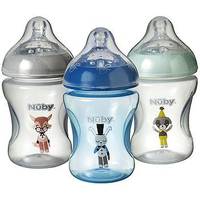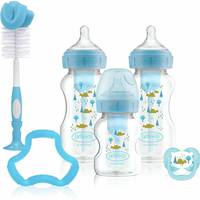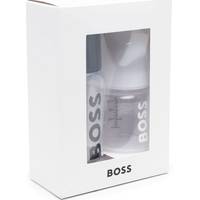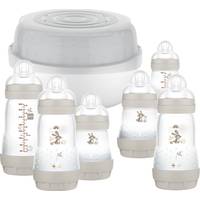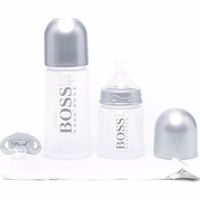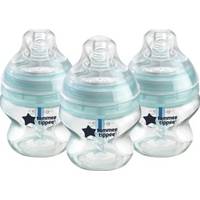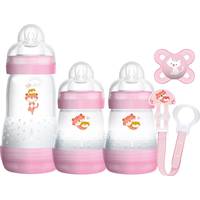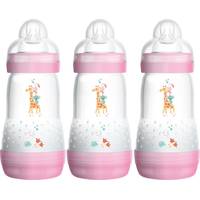Price Tracked On This Product
Highest price was seen £40.00 on 18 Sep 2024
Lowest price was seen £39.99 on 31 Aug 2024
Average price is £39.99 base on 2 price changes
Most recent price is £40.00
[[{"meta":"31 Aug 2024","value":39.99},{"meta":"18 Sep 2024","value":40}]]
Description
Created with parents and babies alike at the forefront of MAM's mind, this set has everything parents need to bottle feed their little ones. As your little one grows and requires a greater volume of milk, the progression in bottle sizes makes for a seamless transition throughout your baby's feeding journey, and the inclusion of the start soother is comfortable and easily accepted by babies. This set has thought of it all. Simple and safe to use and to make everyday baby life easier, MAM's Easy Start Bottle's Set includes the SkinSoftTM teat which is silky soft and provides a familiar feel for babies. Market research confirms that 94%* of babies accept the teat making it perfect for when mum wants to be a bit more flexible. One of the biggest features parents love about the Easy Start Anti Colic Bottles are their ability to self-sterilise. With no need for a separate bottle steriliser, MAM bottles can be self-sterilised in 3 easy steps, ensuring simple and safe bottle cleaning without hassle. MAM's anti-colic bottles also provide a smooth drinking flow by preventing the formation of air bubbles, reducing colic symptoms in 80%** of babies who use them. Key Features: Contains 2 x 130ml bottles with newborn no. 0 teat, 2 x 160ml bottles with slow flow no. 1 teats, 4 x 260ml bottle bodies, 1 x 0-2 month Start soother, 1 x extra soft bottle spout and 1 x hold my bottle handles Progression in bottle sizes Self-sterilising in 3 easy steps Dishwasher safe - on the top rack, max at 65 degrees Celcius but it may discolour bottle components BPA and BPS Free Anti-colic properties provide a smooth drinking flow for babies (*Market research 2009-2022, tested with 1,643 babies.) (**Consumer study USA 2010, tested with 131 mothers, Medical study of 73 infants with colic symptoms, Austria 2011)
You may also like
loading
Discover more

